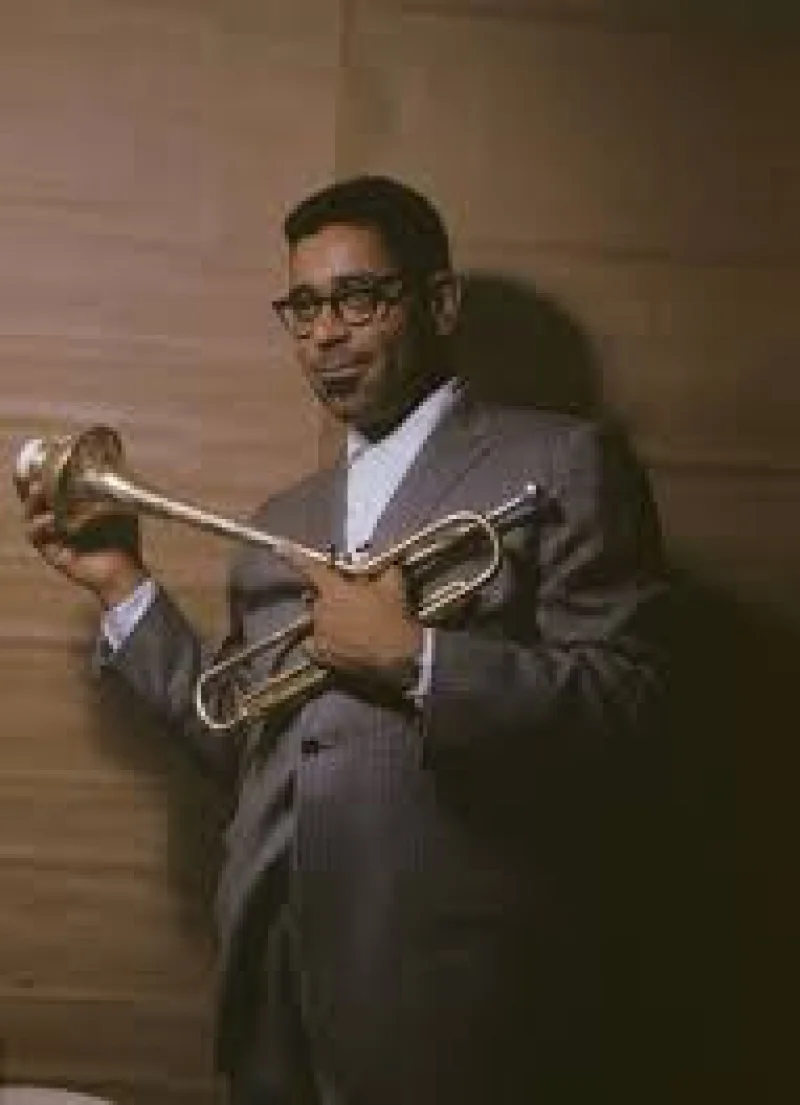Short Summary
Dizzy Gillespie was an American jazz trumpeter, bandleader, and composer, renowned for his profound influence on the development of bebop and modern jazz. Born in 1917, Gillespie's innovative style and distinctive bent trumpet made him a legendary figure in the jazz world. He was instrumental in popularizing Afro-Cuban jazz, and his virtuosic performances and compositions left an indelible mark on music history. His career spanned over five decades, during which he collaborated with many jazz greats and mentored younger musicians, cementing his legacy as a giant of jazz.
Early Life & Education
John Birks Gillespie, known as Dizzy, was born on October 21, 1917, in Cheraw, South Carolina. He was the youngest of nine children in a musical family. His father, a local bandleader, passed away when Gillespie was only ten years old. Despite financial hardships, he taught himself to play the trombone and later the trumpet. Gillespie attended Laurinburg Institute in North Carolina, where he honed his musical skills. Influenced by renowned trumpeter Roy Eldridge and the big band music of the era, he developed a passion for jazz that would define his life's work.
Career Highlights
Gillespie's career took off in the late 1930s when he joined Teddy Hill's band and later, Cab Calloway's orchestra. In the 1940s, he became a pivotal figure in the bebop movement, collaborating with Charlie Parker. Gillespie's innovative trumpet playing and complex compositions, like "A Night in Tunisia," set the standard for modern jazz. He formed his own big band, incorporating Afro-Cuban elements, which led to the development of Latin jazz. Over the years, he performed globally, recorded extensively, and played an influential role in establishing jazz as a respected art form worldwide.
Major Achievements
- Co-founded bebop: A major figure in the development of bebop alongside Charlie Parker.
- Grammy Awards: Received several Grammy Awards for his contributions to jazz.
- Afro-Cuban jazz: Pioneered the integration of Afro-Cuban rhythms into jazz music.
- NEA Jazz Master: Honored as an NEA Jazz Master in 1982, the highest honor in jazz.
- Presidential Medal of Freedom: Awarded posthumously for his contributions to music.
Famous Quotes
- "It's taken me all my life to learn what not to play."
- "I don't care much about music. What I like is sounds."
Interesting Facts
- Known for his bent trumpet, which became his trademark after it was accidentally damaged.
- Played with famous musicians like Ella Fitzgerald, Duke Ellington, and Thelonious Monk.
- Was an outspoken advocate for civil rights and racial equality.
- His nickname "Dizzy" reflected both his energetic style and his playful sense of humor.
- He ran for President of the United States in 1964 as a joke campaign.
Legacy / Influence
Dizzy Gillespie's legacy is profound, with his pioneering work in bebop and Afro-Cuban jazz influencing countless musicians. His innovative approach to jazz trumpet playing and composition set new standards for creativity and technical skill. Gillespie's role as a mentor and collaborator helped shape the next generation of jazz artists, ensuring his impact on music continues to be felt today.
FAQ
Q: Why is Dizzy Gillespie famous?
A: He is famous for being a pioneering figure in the development of bebop and Afro-Cuban jazz.
Q: What was Gillespie's trademark instrument?
A: His trademark was a bent trumpet, which became iconic after it was accidentally damaged.
Q: Did he receive any major awards?
A: Yes, he received several Grammy Awards and the NEA Jazz Master honor.
Q: Was he involved in social activism?
A: Yes, Gillespie was an advocate for civil rights and racial equality.












